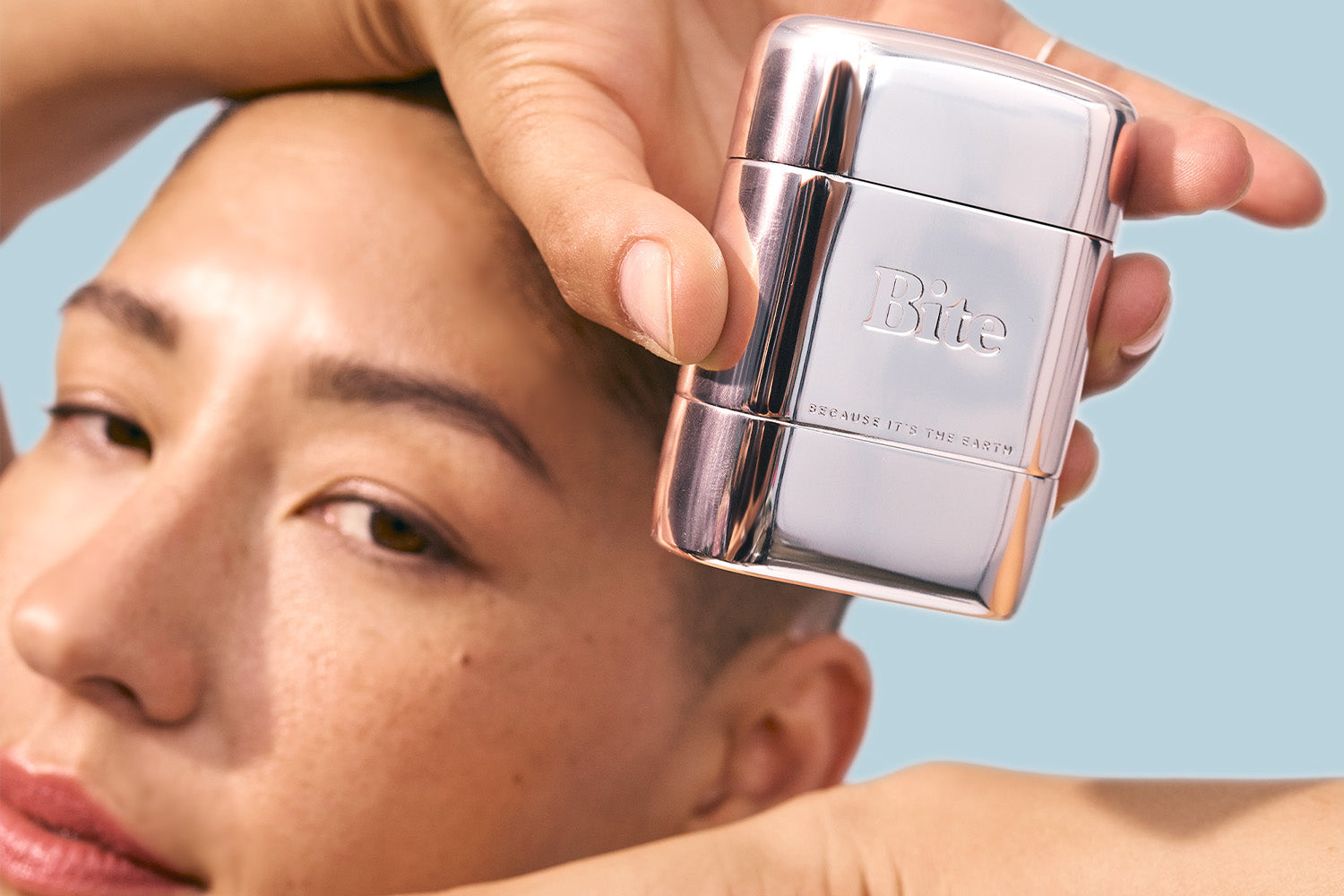Best Deodorant for Sensitive Armpits: Ingredient Breakdowns & More
When it comes to sensitive skin, we often think of reactions to certain cosmetic products or jewelry. If you have sensitive skin, you unfortunately know these reactions all too well.
However, your deodorant could actually be the main cause of your discomfort.
The skin in the underarms is thin and tender, making it more susceptible to bumps, rashes, and irritation, especially if you have sensitive skin overall.
And a number of common chemicals and additives in deodorants can be driving causes of irritation and disruption to the skin’s protective barrier… we’ll explain.
Of course, deodorant is an integral part of many of our personal care routines. It keeps us smelling fresh and feeling confident. Luckily, you don’t need to avoid deodorant altogether to keep your sensitive skin safe.
Instead, knowing what ingredients can cause irritation and what alternatives exist can help you choose the right deodorant stick with confidence — and without sacrificing the health of your skin (because who wants that?)
Why Is Choosing the Right Deodorant Important for Sensitive Skin?
The unfortunate truth is that some of the same factors that lead us to apply deodorant in the armpits in the first place can also be why this area is so much more easily irritated than others.
The folds of the skin that create a warm, moist environment that is inviting to odor-causing bacteria are also more likely to chafe and become irritated from rubbing against skin and clothing.
The delicate skin in this area is also more prone to allergic reactions and can be more easily irritated by abrasive ingredients meant to keep sweat and odor at bay.
What Ingredients Can Irritate Sensitive Skin?
There are a number of commonly used deodorant ingredients known to irritate the skin or throw off the body’s natural balance. Below are a few main players it may be best to avoid.
Aluminum
Aluminum is a chemical element commonly used in antiperspirant deodorants to prevent sweating.
Aluminum can help limit body odor by targeting the source: the sweat that can attract odor-causing bacteria. But by blocking sweat glands, aluminum-based deodorants and antiperspirants can interfere with natural body functions and negatively impact the skin.
Sweating is an essential biological function that helps regulate our temperature, flush out toxins, and support the growth of healthy bacteria.
Some research suggests that as a pro-oxidant, using aluminum on the skin may cause oxidative damage in skin cells that can lead to irritation.
Whether you have a sensitivity to aluminum or simply prefer a deodorant that encourages your body to release sweat naturally, an aluminum-free natural deodorant is an ideal alternative.
Natural deodorants rely on plant-based and naturally-derived ingredients to absorb moisture and neutralize odor-causing bacteria without clogging sweat pores.
But, even aluminum-free deodorants may still include abrasive chemicals and irritants on their ingredients list. There are a few other ingredients to watch out for to protect your sensitive skin.
Sulfates
Sulfates are mineral salts that are often sourced from palm oil or petroleum, a fossil fuel.
While sulfates are a popular ingredient in commercial personal care products, they are also a known skin irritant best to avoid if you have sensitive skin.
Sulfates can be harsh on our skin, as they may remove too much oil and disrupt the skin’s protective outer barrier. This can leave the skin dry, red, itchy, and just overall uncomfortable.
The process of manufacturing sulfates from petroleum and palm oil can have far-reaching consequences on the environment and our health as they emit damaging greenhouse gases and release toxins and pollutants into the air or deplete the planet’s natural resources.
Swapping out sulfate for sustainable, plant-sourced, and palm oil-free ingredients like those found in our Refillable Deodorant is a small but powerful way to avoid dry and irritated skin while also limiting harmful pollutants in the environment.
How’s that for a win-win?
Alcohol
Alcohol is often used in antiperspirants and deodorants — especially in gels and roll-on varieties — to help the product dry quickly once on the skin. However, alcohol can dry out and aggravate sensitive skin.
Parabens
Parabens serve as preservatives in many products, but these chemicals are also known irritants that can cause discomfort for those with sensitive skin. To steer clear of potential irritation, it's best to seek out products listed as paraben-free and with no ingredients ending in “paraben,” such as methylparaben or propylparaben.
Baking Soda
Baking soda is often used for its odor protection, and it is a moisture-absorbing alternative to aluminum in natural deodorants, but unfortunately, this clean ingredient can also cause problems for sensitive skin.
Because baking soda has a high pH level, it can irritate the skin, especially in the underarms, where the skin is thinner and more delicate than in other areas. If you have dry or sensitive skin, you should avoid any deodorants with baking soda and seek out gentler natural ingredients such as coconut oil and shea butter.
Alpha Hydroxy Acids (AHAs)
AHAs are natural acids that have become popular in natural deodorants, as they can help kill that unwelcome odor-causing bacteria.
But, like baking soda, AHAs have high pH levels that can lead to adverse reactions for those of us with sensitive skin.
Phthalates
Phthalates are chemicals used in deodorants to help other ingredients bind and stay on the skin. But, there is plenty of evidence suggesting that phthalates shouldn’t really be on the skin at all.
Studies have found that phthalates can be absorbed through the thin skin of the underarms and into the bloodstream. These chemicals can disrupt the endocrine system, which is responsible for maintaining hormonal balance throughout the body.
Because phthalates are often a hidden ingredient in fragrances, choosing a company that is transparent with its ingredients and labeled as “phthalate-free” can help keep your skin and hormonal function intact.
Fragrance: What To Look For
When it comes to deodorants, you’ll have the option to choose between scented and unscented options.
Scented vs. Unscented Deodorants
When skin irritation or rashes occur in the armpits, ingredients used in the fragrance are often to blame.
One of the reasons fragrances can be so challenging for sensitive skin is that trade laws protect most fragrance formulas, so it’s hard to know exactly what is in them. If you see “fragrance” or “perfume” listed as an ingredient on your deodorant’s label, that could include harsh chemicals and additives such as phthalates.
While unscented deodorants can help limit the number of chemicals your skin is exposed to, we understand that this is not the ideal option for everyone.
Unscented deodorants like ours at Bite can provide a fresh feel and neutral smell by neutralizing odor-causing molecules, but many people prefer the added confidence gained from a scented deodorant that can further mask any natural body odor.
Plus, many people enjoy the pleasant aromas that scented deodorants provide.
If a scented deodorant is more your style, there are ways to help make sure the deodorant you choose won’t mess with your skin.
Sensitive Skin-Friendly Scents
Choosing a natural, phthalate-free deodorant means your product will likely contain only plant-sourced essential oils and safe synthetics that may be gentler on the skin than artificial scents.
However, you still may not know exactly what goes into the fragrance formula.
Not to mention, some people can still have sensitivities to certain essential oils, which is why we feel it is crucial to share all ingredients used in our products.
Our Neroli deodorant fragrance is a 100% naturally derived fragrance, containing the bright essential oils of citrus peels, while our Rose Vert and Santal options contain safe, cruelty-free synthetics along with essential oils such as eucalyptus, sandalwood, and tea tree oil.
And of course, our unscented deodorant is available for anyone who prefers a fragrance-free option.
At Bite, we value transparency as part of our Nothing to Hide Pledge. In this pledge, you can find all of the ingredients our fragrances contain. We believe it is key to ensure that everyone has access to the information needed to confidently choose wellness products that they can feel good about and that will feel good to them!
What Are Some Natural Ingredients for Sensitive Skin?
At Bite, we only use clean, plant-based ingredients safe for sensitive skin. Our deodorant is baking soda-free and alcohol-free, making it safe for all skin types.
Here is a breakdown of some of the natural ingredients you’ll find as alternatives to harsh and harmful additives in Bite deodorants.
Tapioca Starch
Bite uses gentle, plant-derived tapioca starch to absorb sweat without completely blocking the process instead of the potentially irritating aluminum or baking soda.
This gluten-free superstar also helps bind the deodorant together without relying on harmful phthalates or chemicals (yuck!)
Shea Butter
The ultra-moisturizing shea butter is extracted from the seeds of the shea tree, providing a natural source of vitamin E to keep the skin hydrated and soft while also helping lock odor out.
Coconut Oil
The antibacterial properties of coconut oil help prevent the growth of bacteria while also reducing irritation. Coconut oil’s naturally soothing and antioxidant properties make it ideal for sensitive skin.
Castor Oil
Castor oil is another gentle ingredient for sensitive skin. Castor oil helps keep that delicate underarm skin well hydrated, calm, and smooth.
Ozokerite
Ozokerite is a binding mineral wax that serves as a vegan and sensitive skin-friendly alternative to beeswax or baking soda.
Zinc Ricinoleate
Zinc Ricinoleate is a plant-derived fatty acid that also happens to be a stellar odor trapper. Zinc Ricinoleate traps and absorbs odor molecules, keeping us smelling fresh without messing with our sweat glands.
Bite Is Easy on Your Skin and the Environment
Using a clean and natural formula that will benefit the planet as much as it benefits your skin.
With Bite, caring for the sensitive skin of the underarms goes hand in hand with caring for the planet.
Our refillable deodorant case is completely plastic-free, and our refills are compostable. Keeping plastics out of our products and packaging helps reduce the 15 million pounds of deodorant packaging that ends up in landfills and oceans each year and reduces the toxins and pollutants that plastics can release into our air, water, and bodies.
With seemingly endless plastic and chemical-filled products surrounding us, we want to make it easy to make choices that benefit your wellness and the environment.
That's why we are committed to our zero-waste mission and sustainability practices.
When it comes to tending to your body and wellness, you shouldn’t have to rely on products that can harm the environment or your skin. Our natural and sustainable deodorant is formulated to keep sensitive skin calm, soft, happy, and, of course, pleasantly odor-free.
Sources
There Are Some Health Benefits Of Sweating | Piedmont Healthcare
Aluminum Found In Sunscreen: Could It Cause Skin Cancer? -| ScienceDaily
Sodium Lauryl Sulfate: Water Soluble Irritant Dermatitis Model | Research Gate
8 things to know about palm oil | WWF
Everyday plastics can pollute, leaching thousands of chemicals | Science News for Students



